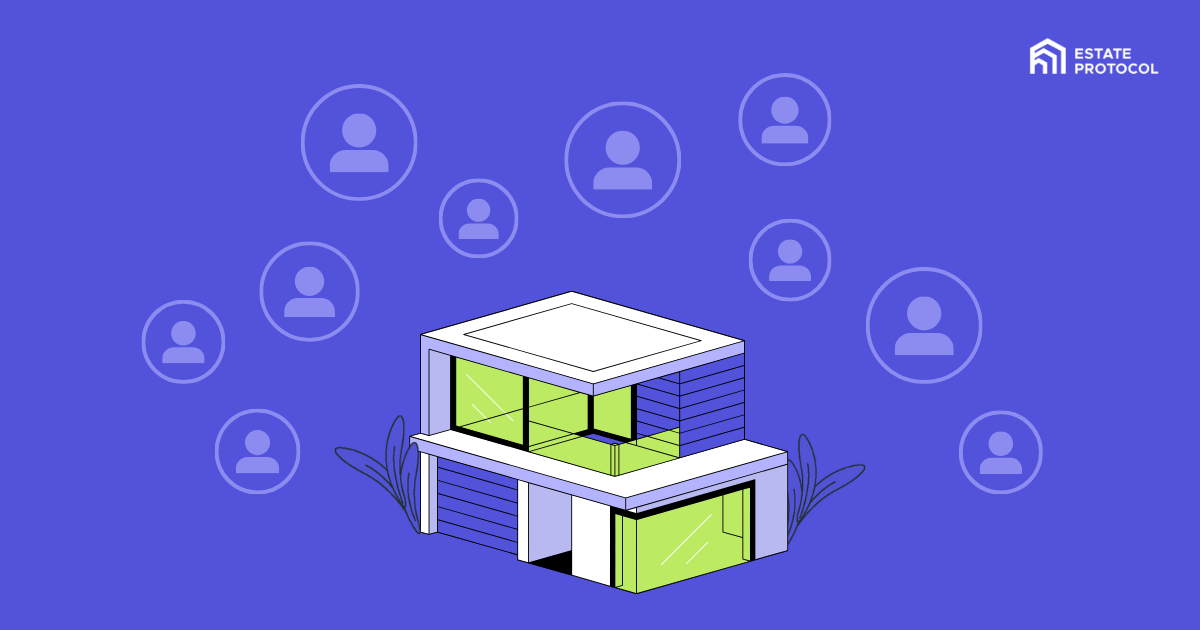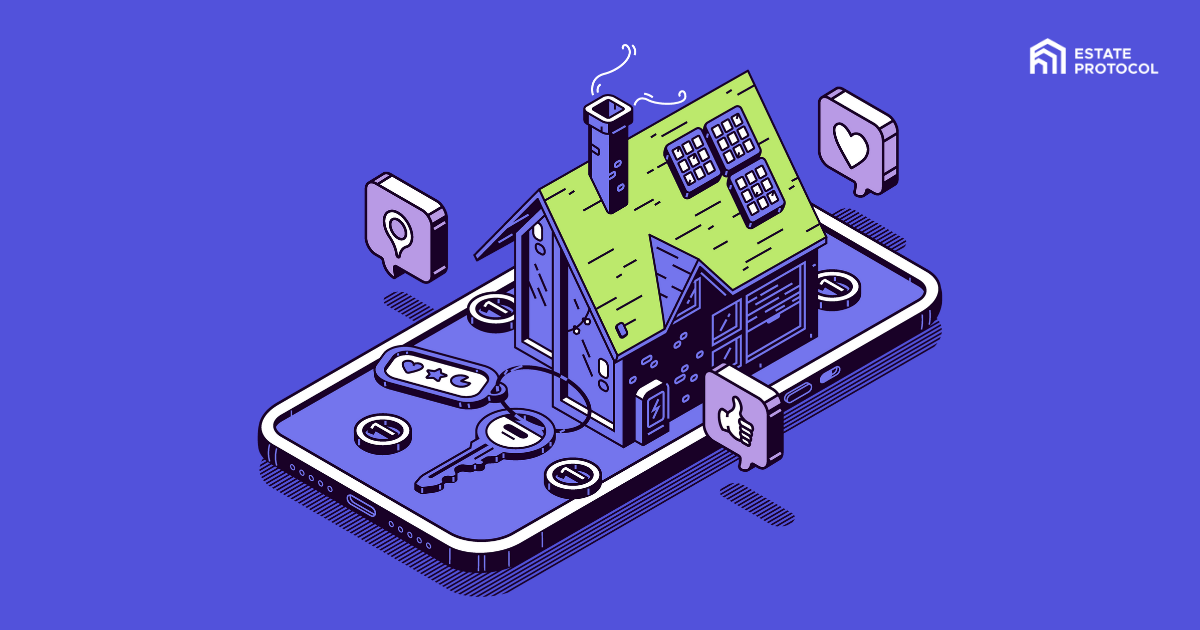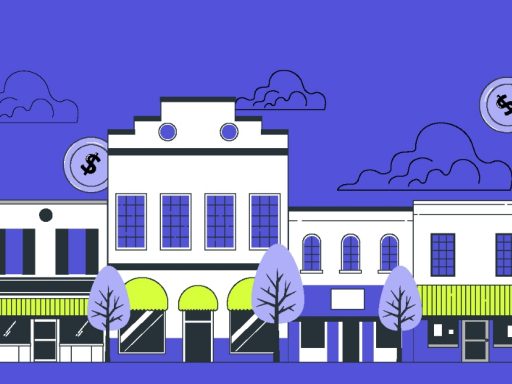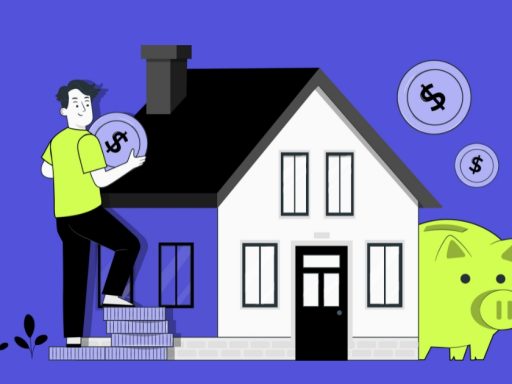Are you an investor interested in the world of real estate? Have you heard about the revolutionary concept of tokenized real estate? If not, you’ve come to the right place. In this guide, we will explore the exciting world of tokenized real estate and how it can benefit investors in Dubai and beyond.
Tokenized real estate is an innovative approach that leverages blockchain technology to convert real estate properties into tokens. These tokens represent fractional ownership in the property and provide numerous advantages for investors.
By utilizing a real estate tokenization platform, investors gain access to increased liquidity, fractional ownership opportunities, and the ability to participate in the global real estate market. Whether you are a seasoned investor or just starting out, tokenized real estate offers a secure and efficient way to diversify your portfolio.
Key Takeaways:
- Tokenized real estate utilizes blockchain technology to convert real estate properties into tokens.
- Investors can benefit from increased liquidity, fractional ownership opportunities, and access to the global real estate market.
- Real estate tokenization platforms provide a secure and efficient way to invest in real estate.
- Tokenized real estate offers increased flexibility and potential for higher returns on investment.
- Dubai is at the forefront of real estate tokenization, providing exciting opportunities for investors in the region.
What is tokenization?
Tokenization is the process of converting something of value, like real estate or a work of art, into a digital token that can be used to represent that asset on a blockchain. This token can then be traded, sold, or exchanged just like any other cryptocurrency. Tokenization can be used to fractionalize ownership of an asset, meaning that multiple people can own a piece of the asset, and each can trade their piece independently.
For example, let’s say you own a building that you want to tokenize. You would create a digital token that represents ownership of that building, and then sell fractions of that token to people who want to invest in your property. These investors can then trade their tokens on a secondary market, or hold onto them as an investment. If the value of your property goes up, then the value of the tokens will go up as well. And since the tokens are tradeable, investors can cash out at any time.
Tokenization has the potential to revolutionize the way we invest in and trade assets. For one, it opens up investment opportunities to a wider pool of people. No longer do you need to be wealthy to invest in real estate or art – with tokenization, you can buy a fraction of an asset for as little as you want. Tokenization also makes it easier and cheaper to trade assets, since there are no physical goods to transport or transfer. And since blockchain technology is immutable and transparent, it provides a level of security and peace of mind that traditional methods cannot match.
The benefits of tokenization are already being realized in the real estate industry. Tokenizing real estate assets makes it possible to fractionalize ownership and trade them on a secondary market. This opens up investment opportunities to a wider pool of people and allows for more liquidity in the market. And since blockchain technology is immutable and transparent, it provides a level of security and peace of mind that traditional methods cannot match.
The global tokenized real estate market is expected to grow from $1.8 billion in 2020 to $28.9 billion by 2025, at a CAGR of 79.8% during the forecast period (2020–2025). The major factors driving the growth of the tokenized real estate market include the need for transparency and security in real estate transactions and the growing popularity of blockchain technology.
In 2020, the US accounted for the largest share of the tokenized real estate market, followed by Europe and Asia Pacific. This is due to the presence of a large number of real estate firms in the country and the early adoption of blockchain technology. The market in Asia Pacific is expected to grow at the highest CAGR during the forecast period due to the increasing number of real estate projects being developed in the region and the growing awareness about tokenization.
What is real estate tokenization?
Real estate tokenization is the process of converting rights to a real estate asset into a digital token. The token can then be traded on a blockchain-based platform, enabling fractional ownership of the asset and opening up new investment opportunities.
How does it work?
Tokenization of real estate assets is a relatively new concept, but it is already gaining traction in the market. One of the key benefits of tokenization is that it allows for fractional ownership of an asset. This means that instead of having to buy an entire property, investors can now purchase a token that represents a fraction of the property. This opens up investment opportunities to a wider range of investors, as well as making it possible to trade property ownership rights in a more liquid market.
Another benefit of tokenization is that it enables greater transparency and security in the ownership of a property. Tokenization creates a digital record of ownership that is stored on a blockchain, which is a public ledger that can be verified and audited. This reduces the risk of fraud and makes it easier to track ownership changes.
The market for tokenized real estate assets is still relatively small, but it is growing. Some estimates put the tokenized real estate market size at around $1 billion, with the potential to grow to $30 billion by 2025. The growth of the market will be driven by the increasing adoption of blockchain technology and the benefits that tokenization offers over traditional methods of ownership.
Growth of Tokenized Real Estate in Dubai
One of the key markets for tokenized real estate is Dubai. The city has already seen a number of successful pilot projects, and the government is supportive of the adoption of blockchain technology. The Dubai Land Department has even launched its own blockchain-based platform, called eMutton, which enables the tokenization of property ownership.
The growth of real estate tokenization Dubai market presents a number of opportunities for investors. Tokenization offers a more liquid and transparent market for investment, as well as the potential for fractional ownership of assets. With the right platform and investment, there is the potential to generate high returns from the tokenized real estate market.
Benefits of tokenization in real estate
Tokenization can provide many benefits to both buyers and sellers of real estate.
Some of the benefits for buyers include:
- Increased liquidity: By tokenizing an asset, it becomes much easier to trade it on a secondary market. This can be a big benefit for investors who want to exit their investment quickly, or for those who want to rebalance their portfolios.
- More transparency: Blockchain-based platforms that offer tokenized real estate can provide greater transparency around pricing, ownership, and other important factors. This can help buyers to make more informed investment decisions.
- Reduced transaction costs: Tokenization can help to reduce some of the costs associated with traditional real estate transactions, such as brokerage fees.
Some of the benefits for sellers include:
- Access to global markets: Tokenization can make it easier for sellers to tap into global markets of buyers. This can be especially beneficial for small and medium-sized businesses that might not have the resources to market their property globally.
- Reduced friction: Tokenization can help to reduce some of the friction associated with traditional real estate transactions. For example, by tokenizing a property, a seller could avoid having to go through the process of finding a buyer, going through escrow, and paying commissions.
- Greater flexibility: Tokenization can also provide greater flexibility for sellers in terms of how they want to sell their property. For example, a seller could choose to sell a fraction of their property (or tokens representing a fraction of their property) rather than the entire property.
What are the problems with tokenization of real estate?
Tokenization allows for fractional ownership of a property, which opens up investment opportunities for a wider range of people. However, tokenization also comes with a number of risks and challenges that need to be considered.
One of the biggest risks with tokenization is the potential for fraud. Because tokens can be traded on a secondary market, it is possible for scammers to create fake tokens or to sell tokens that do not represent a real property. This could lead to investors losing a lot of money if they purchase these fake tokens.
Another risk is that the tokenized property could be sold without the consent of the token holders. If the property is sold without the consent of the token holders, they may not receive any of the proceeds from the sale. This could lead to investors losing money if they have invested in a property that is sold without their consent.
There are also regulatory risks associated with tokenization of real estate. The rules and regulations surrounding tokenization are still being developed, and there is a risk that the regulations could be unfavorable to investors. This could lead to investors losing money if they are not able to comply with the new regulations.
Overall, there are a number of risks and challenges associated with tokenization of real estate. However, if these risks and challenges can be successfully addressed, tokenization could provide opportunities for a wider range of people to invest in real estate.
Real estate tokenization examples
One of the most well-known real estate tokenization examples is the Dubai real estate market. The Dubai government has been working on a project to tokenize all of the city’s real estate assets. This would create a digital asset that could be traded on a blockchain platform. The Dubai government believes that this will make the real estate market more efficient and transparent.
Another example of real estate tokenization is the tokens that are being created by the startup Estate Protocol. Estate Protocol tokenizes real real estate and bridges the gap between real world assets and the digital world through blockchain. Through Estate Protocol, people from anywhere in the world can invest in fractionalized properties in stable economies.
These are just a few examples of how real estate tokenization is being used today. As the technology continues to evolve, we’re likely to see even more innovative applications of this exciting new technology.
Table: Benefits of Real Estate Tokenization in Dubai
| Benefits | Description |
|---|---|
| Increased Liquidity | Investors can trade real estate tokens easily, providing liquidity and reducing barriers to entry. |
| Fractional Ownership | Tokenization allows investors to own fractions of high-value properties, enabling diversification. |
| Global Market Access | Investors can participate in the Dubai real estate market from anywhere in the world. |
| Enhanced Transparency | Blockchain technology ensures data transparency, reducing fraud and enhancing trust. |
| Improved Security | Tokenization offers secure transactions and eliminates the need for intermediaries. |
Regulations for real estate tokenization in Dubai
The regulatory landscape plays a crucial role in the success of real estate tokenization projects, ensuring compliance, transparency, and investor protection. In Dubai, where real estate tokenization is gaining traction, several regulatory bodies oversee the activities of token issuers, investors, and service providers.
Regulatory Bodies in Dubai
Dubai International Financial Centre (DIFC), Abu Dhabi Global Market (ADGM), and Emirates Securities and Commodities Authority (ESCA) are the main regulatory bodies responsible for overseeing real estate tokenization in Dubai. These entities have established specific requirements and guidelines to ensure the integrity and efficiency of tokenized real estate transactions.
Authorization and Prospectus Requirements
Security tokens, which represent ownership in the underlying property, are subject to authorization and prospectus requirements set forth by the regulatory bodies. This process ensures that token issuers meet the necessary criteria and provide potential investors with adequate information regarding the investment opportunity.
Compliance and Cross-Border Regulations
Compliance with cross-border regulations is another crucial aspect of real estate tokenization. Understanding the legal landscape and navigating international regulations is essential for successful tokenization projects. Adhering to regulatory requirements ensures investor protection and promotes trust in the tokenized real estate market.
Regulatory Body Responsibilities
- Dubai International Financial Centre (DIFC) Regulates token issuers, investors, and service providers
- Abu Dhabi Global Market (ADGM) Oversees real estate tokenization activities
- Emirates Securities and Commodities Authority (ESCA) Provides regulatory guidelines for the market
Can you invest in real estate using tokenization?
Yes, you can invest in real estate using tokenization. Real estate tokenization is the process of converting real estate assets into digital tokens that represent ownership of the underlying property. These tokens can then be bought and sold on a blockchain, making it easier for investors to fractionally own real estate assets.
Real estate tokenization offers several advantages over traditional real estate investment methods. First, it makes real estate more accessible to a wider range of investors. This is because tokens can be fractionalized, meaning that investors can buy a small piece of a property instead of having to buy the entire property outright. This makes real estate investing more affordable and can help to democratize access to this asset class.
Second, real estate tokenization increases the liquidity of real estate investments. This is because tokens can be easily traded on a blockchain, which makes it much easier to buy and sell real estate assets than it is to buy and sell traditional real estate properties.
Third, real estate tokenization enhances transparency in real estate transactions. This is because all transactions involving tokens are recorded on the blockchain, which is a public and immutable ledger. This makes it possible to track the ownership of tokens and to ensure that all transactions are fair and transparent.
The process of tokenizing a real estate asset typically involves the following steps:
- Selecting a suitable property for tokenization
- Conducting due diligence on the property
- Creating digital tokens on a blockchain platform
- Offering the tokens to investors through a token offering
- Listing the tokens on a blockchain-based trading platform
- Appointing a property management company to oversee the property
- Distributing income to token holders
And you can invest in such tokenized real estate directly on Estate Protocol and create a diversified portolio of tokenized properties, earn passive rental income and get benefits of property appreciation. And you can do this from anywhere in the world in properties from stable economies like Dubai.
Fractional Ownership Opportunities:
Tokenized real estate also enables fractional ownership, which allows investors to purchase and own a fraction of a property. This fractional ownership model lowers the barrier to entry for real estate investments, as investors can buy tokens representing shares in high-value properties without having to purchase an entire property. This provides greater flexibility and diversification opportunities for investors.
Global Market Access:
With real estate tokenization, investors can access global markets and participate in real estate investments worldwide. By tokenizing properties, investors can invest in properties located in different countries, diversify their portfolios, and take advantage of potential market opportunities in various regions. This global market access expands investment possibilities and reduces geographic limitations.
Conclusion: Embracing the Future of Real Estate
Real estate tokenization is revolutionizing the way people invest in real estate, and Dubai is at the forefront of this change. With its robust real estate market and innovative mindset, Dubai offers an ideal environment for embracing the future of real estate tokenization. By leveraging the power of blockchain technology, investors can now access previously untapped opportunities in the Dubai real estate market.
To embark on this transformative journey, it is crucial to choose the best real estate tokenization platform. Research and select a platform that aligns with your business goals and regulatory requirements. Look for a platform that offers seamless tokenization processes, secure transactions, and comprehensive support to ensure a smooth and successful tokenization experience.
By embracing real estate tokenization in Dubai, investors and entrepreneurs can enjoy the benefits of increased accessibility, liquidity, and security. Tokenized real estate provides a gateway to fractional ownership, allowing investors to diversify their portfolios with lower entry points. Furthermore, the transparency and automation offered by blockchain technology ensure secure and efficient transactions, transforming the Dubai real estate market for the better.
So, don’t miss out on this opportunity to be part of the game-changing movement. Embrace the future of real estate tokenization in Dubai, and unlock a world of possibilities in the dynamic and thriving real estate market.
FAQ
What is tokenized real estate?
Tokenized real estate is the concept of converting real estate properties into digital tokens using blockchain technology. Each token represents a fraction of ownership in the property, providing benefits such as increased liquidity and fractional ownership opportunities.
What are the benefits of tokenization in real estate?
Tokenization in real estate offers increased liquidity, fractional ownership opportunities, and global market access. It also enhances security, reduces transaction costs, and provides transparency through blockchain technology.
How does real estate tokenization work?
Real estate tokenization involves representing physical properties as digital tokens on a blockchain. Each token represents a fraction of ownership, allowing for easier division of ownership rights. The process includes choosing a blockchain platform, framing smart contract terms, and integrating the platform with other systems.
What is the regulatory landscape of real estate tokenization?
Real estate tokenization falls under the regulatory framework of each jurisdiction. In Dubai, regulatory bodies such as DIFC, ADGM, and Emirates SCA have specific requirements for token issuers, investors, and service providers. Compliance with cross-border regulations and understanding the legal landscape is crucial for successful real estate tokenization projects.
Can you provide a case study of real estate tokenization in Dubai?
Estate Protocol, a leading company in real estate tokenization, has introduced a groundbreaking tokenization platform in Dubai’s real estate market. Leveraging blockchain technology, the platform offers fractional ownership, increased accessibility, and transparency. Investors can participate in Dubai’s real estate market through the Estate Protocol platform.
What are the advantages of real estate tokenization?
Real estate tokenization offers increased liquidity, fractional ownership opportunities, global market access, enhanced security, and reduced transaction costs. It allows investors to diversify their portfolios and participate in real estate investments with lower entry points.
What are the challenges in real estate tokenization?
The real estate tokenization industry is still relatively new, with unanswered questions and regulatory ambiguities. The availability of real estate asset tokens for trading on international exchanges is limited, affecting liquidity. Local regulators’ treatment of cross-border transactions and data transparency is yet to be fully explored.





